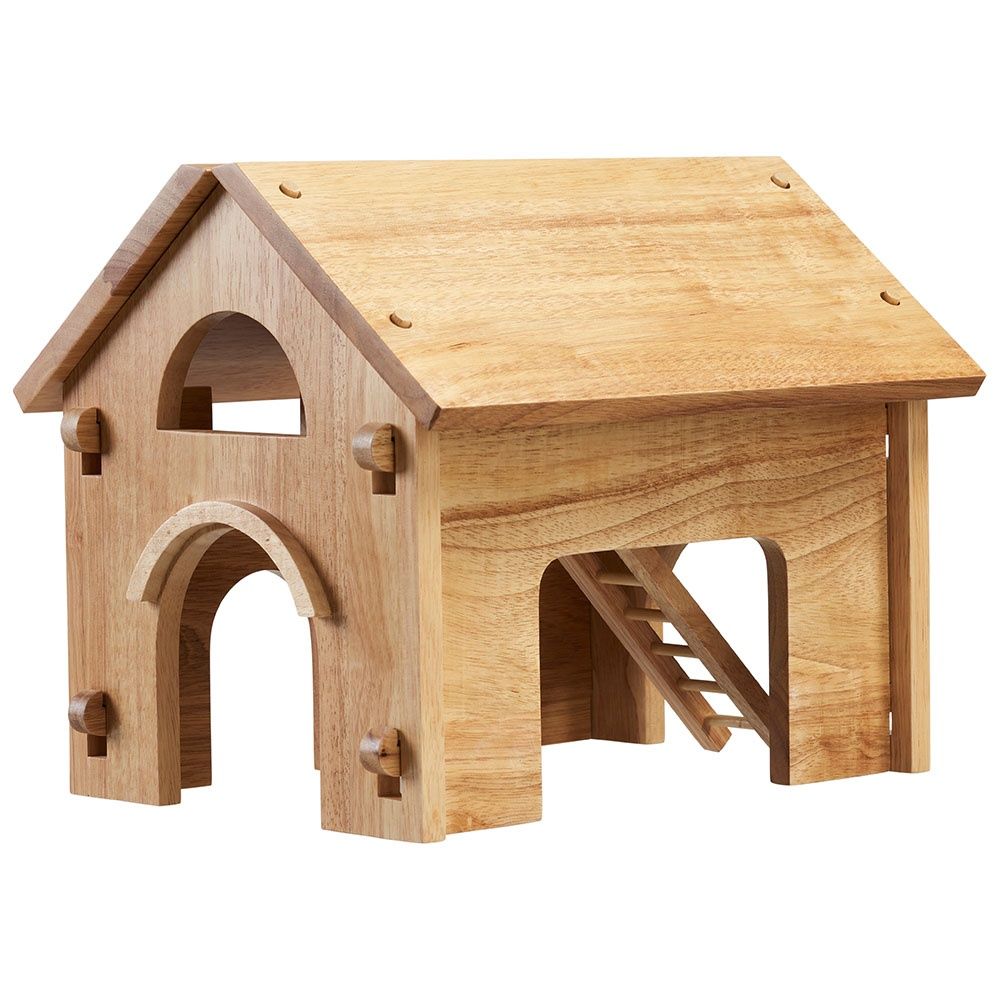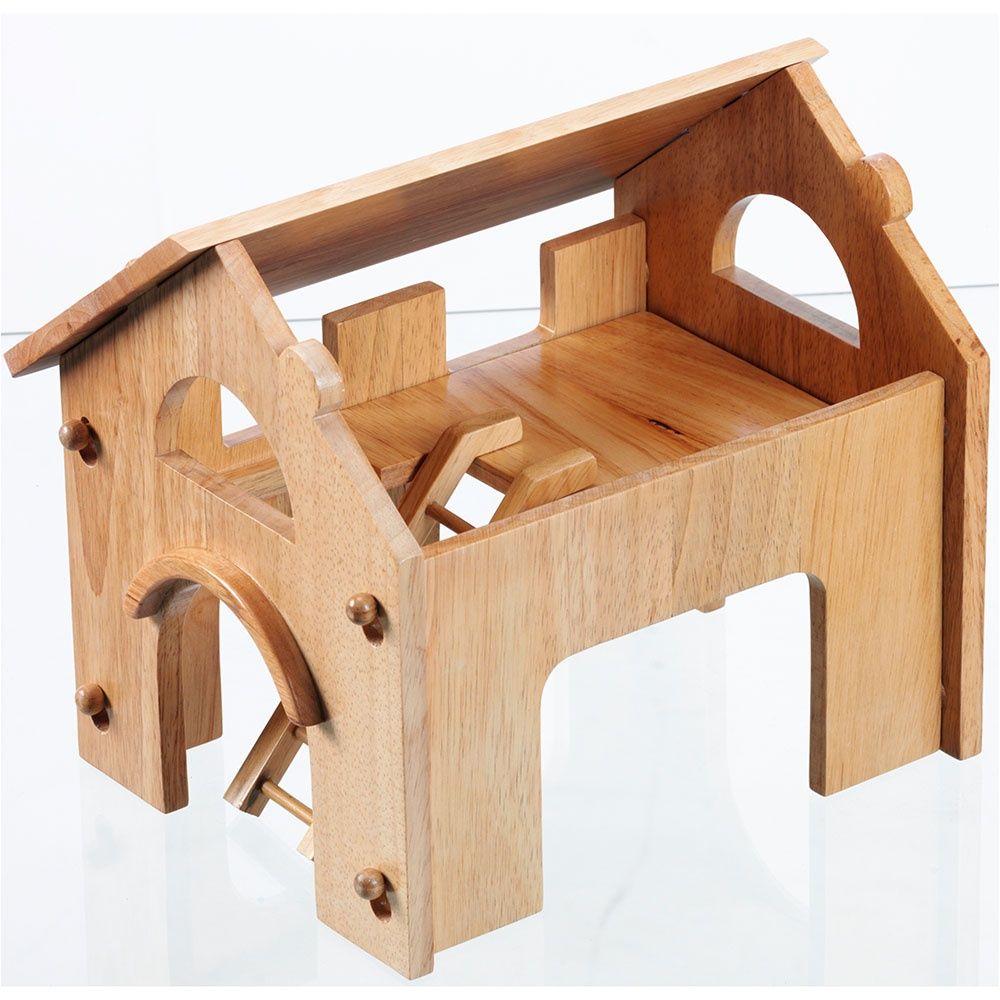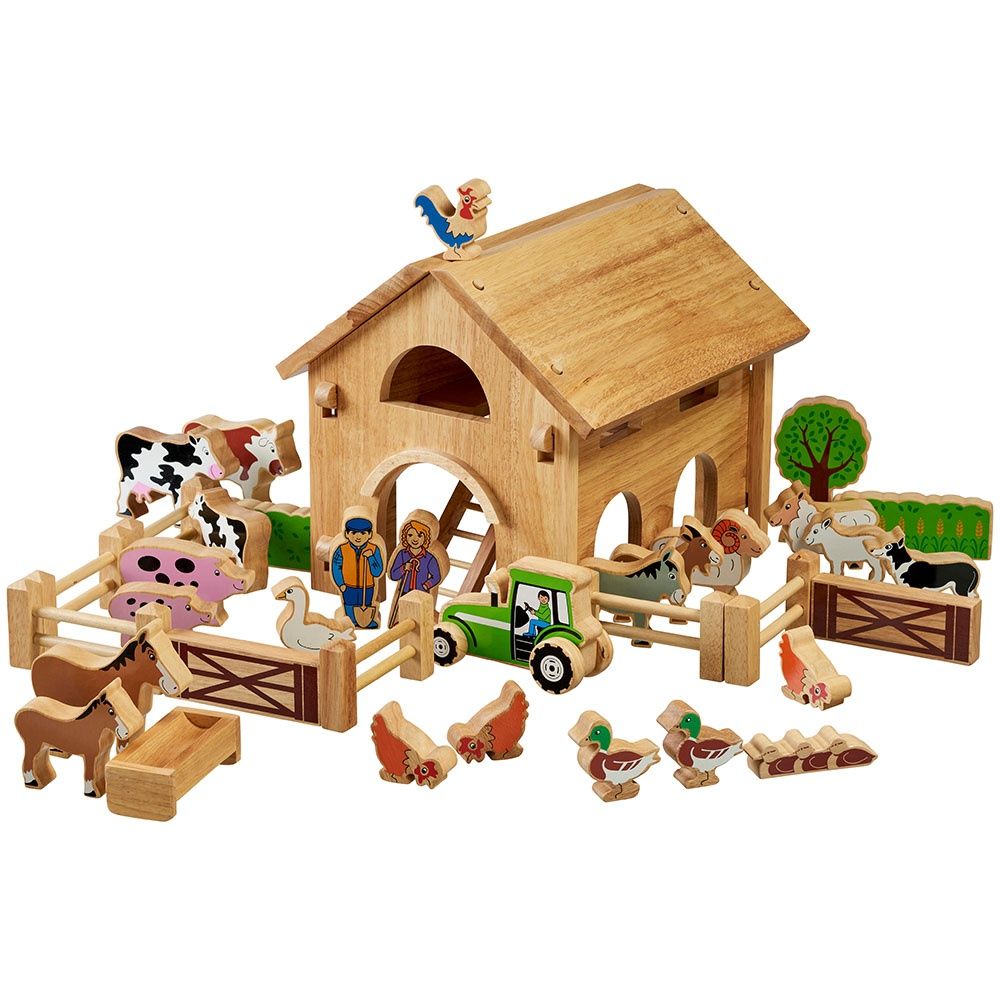Description:
This chunky wooden farm barn is a two-storey farm building with removable roof panels and ladder. Perfect for small world play, invitations to play and group play, add animals to this barn from our ranges for a truly unique traditional toy.
This deluxe farm barn:
- is a two-storey barn building with removable roof and ladder
- is made from eco friendly materials
- does not include any animals or characters
- is supplied in a plain white box (an easy shape to wrap if a gift!)
Don't miss our extensive range of countryside, world, farm animals and farm accessories in our natural range!
This fair trade natural farm barn is handcrafted by skilled artisans in Sri Lanka from sustainably sourced rubber wood. Blemishes should be expected, these are part of the beauty of a natural wood product.
Made of rubber wood
Dimensions: 310mm (H) x 300mm (W) x 355mm (D)
We recommend a play age of 3-8 years
Role play can offer numerous benefits for a child's development. Here are some of the key advantages:
-
Social Skills: Role play provides children with opportunities to interact with others, helping them develop crucial social skills such as communication, cooperation, and negotiation. Through imaginative play, children learn to take on different roles, understand perspectives, and work together with peers.
-
Emotional Development: Role-playing allows children to express and explore various emotions in a safe and controlled environment. They can practice dealing with different feelings, learn empathy, and understand how others might feel in certain situations.
-
Language Development: Engaging in role play helps children enhance their language skills. They learn to use and understand a broader vocabulary, improve their sentence structure, and develop better communication skills as they express thoughts and ideas within the context of the play scenario.
-
Creativity and Imagination: Role play stimulates creativity and imagination. Children invent scenarios, create characters, and use their imagination to bring their stories to life. This helps in developing creative thinking and problem-solving skills.
-
Cognitive Development: Role-playing involves complex thinking and decision-making. Children must remember and follow certain roles, make choices, and solve problems within the context of the play. This promotes cognitive development and enhances executive functions such as planning and organizing.
-
Empathy and Understanding: Role play allows children to step into the shoes of others, fostering empathy and a better understanding of different perspectives. This can contribute to the development of tolerance and respect for diversity.
-
Confidence Building: Through role play, children gain confidence as they experiment with different roles and scenarios. They learn to express themselves, take risks, and overcome shyness or fear of judgment.
-
Physical Development: Certain types of role play involve physical activity, which contributes to a child's motor skills and coordination. Whether it's pretending to be animals, superheroes, or community helpers, children engage in movements that promote physical development.
-
Understanding of Real-World Concepts: Role-playing often involves imitating real-life situations, such as playing house, doctor, or grocery store. This helps children make connections between their play activities and the real world, fostering a better understanding of various concepts.
-
Teamwork and Cooperation: Many role-playing scenarios require teamwork and cooperation. Children learn to collaborate with others, share responsibilities, and work together towards a common goal.





